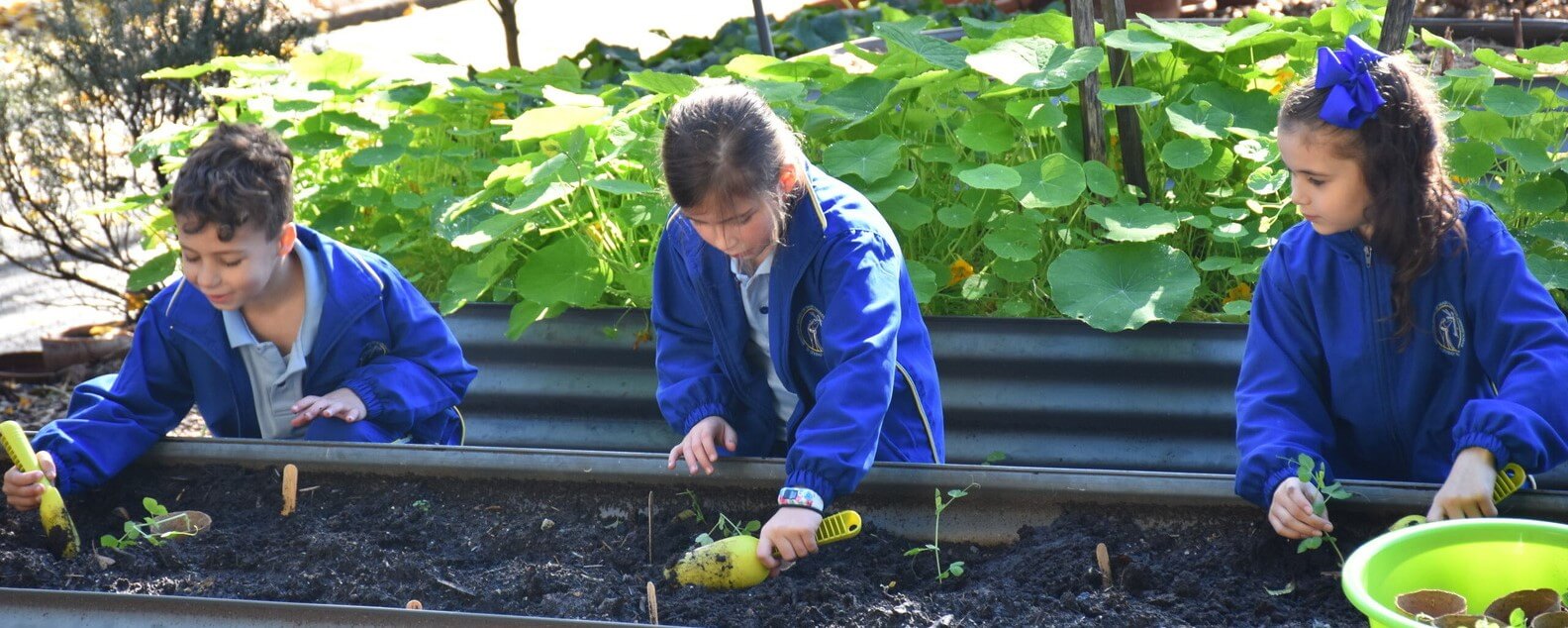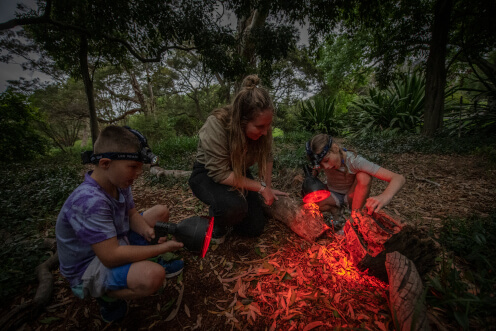Sustainability Superheroes
Explore sustainable living practices and become a sustainability superhero!

Stage 2
Science and Technology
2 hours
Minimum charges apply. Discounts apply for full day programs!
Explore sustainable gardening and crop farming practices by participating in growing plants for food, exploring our compost and worm farm area and using problem solving skills to design a simple rainwater harvesting system.
Students will develop an understanding of how their super powers can save the world!
Students will
- Explore and participate in sustainable living and agricultural practices that reduce environmental impact such as growing vegetables, composting and native, stingless bee-keeping.
- Design a simple rainwater harvesting system within the specified design criteria.
- Model superhero behaviours to take the sustainability message back out into the world.
Key content
- Learn about making futures focused sustainable decisions.
- Explore sustainable gardening processes by investigating composting, worm farms, native bee hives, edible plants and rain water management.
- Plant a seed, utilising recycled materials and exploring the concept of a circular economy as a solution to climate change.
- Collaboratively design a sustainable rainwater harvesting system, considering the properties of materials.
- Model sustainable behaviours to communicate to the world.
Links to New South Wales curriculum
Focus Syllabus Outcomes
Science
- Selects and uses materials, tools and equipment to develop solutions for a need or opportunity (ST2-2DP-T)
- Investigates the suitability of natural and processed materials for a range of purposes (ST2-7MW-T)
- Describes how agricultural processes are used to grow plants for food, clothing and shelter (ST2-5LW-T)

"Explore sustainable gardening processes by investigating composting, worm farms, native bee hives, edible plants and rain water management."
Related excursions

Experience the Garden and its fascinating nightlife on this adventure by torchlight.

Based on Katrina Germein’s book Big Rain Coming, students will explore how First Nations people read and understand daily and seasonal weather changes and how this affects the places and environments around us.

Students will investigate a wide variety of local native plants that are integral in the life of First Nations peoples, exploring how these plants contribute to sustainability practices and the preservation of natural resources.